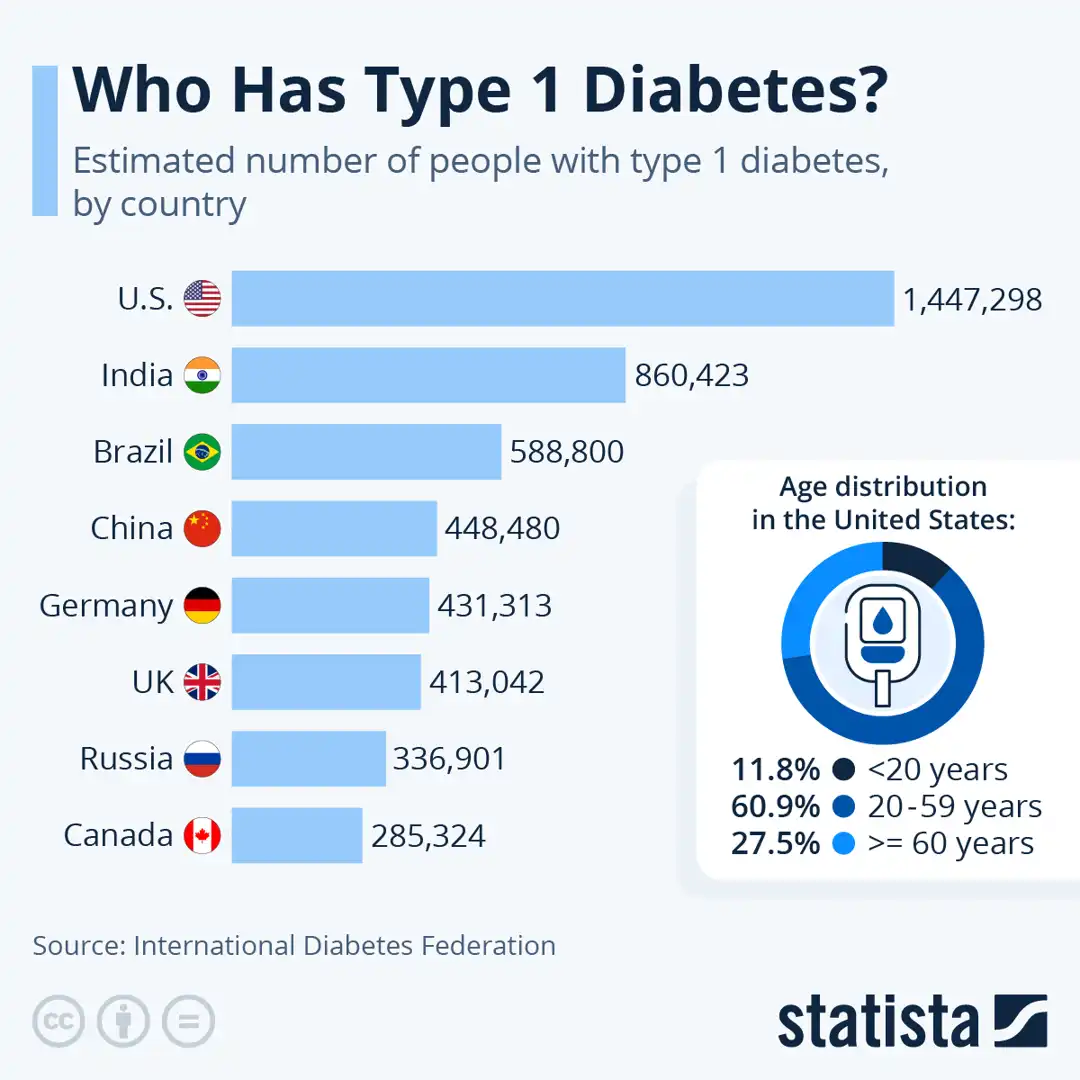Diabetes Explained: Simple Guide to Symptoms & Management

Confused About Blood Sugar? Diabetes Explained
Its a series of diseases that mess with how your body handles blood sugar also known as glucose. The glucose is basically the fuel that powers your muscles tissues and even your brain. Remember glucose is the gasoline that keeps your bodys engine running. But with diabetes, that engine sputters because it cant use glucose properly. This can lead to too much sugar in your blood which can cause some serious health problems down the road.
There are different types of diabetes with some being more chronic than others. Type 1 and type 2 diabetes are long-term conditions. The prediabetes and the gestational diabetes are different and potentially reversible if you take steps to manage them. Prediabetes is like a warning sign that your blood sugar is higher than it should be but not high enough to be diagnosed as diabetes. Gestational diabetes pops up during pregnancy and often disappears after the baby is born.

Is Your Body Sending Secret Signals About Diabetes?
Diabetes symptoms can be tricky. Those depend on how high your blood sugar is. Some folks especially those with prediabetes gestational diabetes or type 2 diabetes might not even notice anything is wrong. But with type 1 diabetes symptoms tend to pop up suddenly and can be pretty intense. Think of it like this: your body is running on fuel, and that fuel is glucose. Insulin acts like a key unlocking your cells to let glucose into your cells.
If you have diabetes this key doesnt work properly. This can lead to a whole bunch of annoying symptoms like feeling extra thirsty, peeing more often, losing weight without trying, and feeling generally tired and weak. You might also notice your vision getting blurry cuts taking forever to heal and more frequent infections.

Is Your Body Trying to Tell You Something About Diabetes?
Diabetes can sneak up on you so its important to be aware of the symptoms. If you or your child are experiencing things like increased thirst frequent urination unexplained weight loss or excessive hunger dont wait. Get in touch with your healthcare provider right away. A good early diagnosis is key to managing diabetes effectively and preventing complications.
Once you have a diabetes diagnosis, the journey doesnt end there. Youll need to work closely with your doctor to monitor your blood sugar levels and make adjustments to your treatment plan. This may involve medication dietary changes and regular exercise. Think of it like a partnership you and your doctor are on the same team working together to keep your blood sugar in check and your health on track.

Why is My Body Having Trouble Using Sugar?
Diabetes is a condition that affects how your body processes sugar. This sugar called glucose is the main source of energy in your body. When you eat, your body breaks down carbohydrates into glucose. This glucose enters your bloodstream. Your pancreas a small organ near your stomach releases a hormone called insulin.
Insulin acts like a key allowing glucose to enter your cells. This process provides your cells with the energy they need to function. In diabetes, this process goes awry. Either your body doesnt make enough insulin or your cells dont respond to insulin properly. This leads to a buildup of glucose in your bloodstream which can cause a range of health problems over time.

What Happens When Your Body Cant Use Sugar Right?
Think of your body as a bustling city. Sugar, or glucose, is the citys fuel. In the same way a city needs a smart traffic system to manage the flow your body needs insulin to regulate sugar levels. Insulin is a hormone produced by a small gland called the pancreas that is hidden behind and below your stomach. When you eat your blood sugar goes up. This signals the pancreas to release insulin into the bloodstream. Think of insulin as a key that unlocks the doors of your cells allowing sugar to enter and be used for energy. As sugar levels drop the pancreas slows down insulin production.
This delicate balance keeps your energy levels stable and prevents dangerous spikes in blood sugar. Problems arise when this system malfunctions like in diabetes. In type 1 diabetes the bodys immune system mistakenly attacks and destroys the insulin-producing cells in the pancreas. This means the body cant make insulin at all. In type 2 diabetes the body becomes resistant to insulin meaning that the cells dont respond to it properly.

Why Does My Body Have Trouble Using Sugar?
Glucose is like the fuel that powers your bodys cells, especially those in your muscles and tissues. Think of it as the energy currency your body uses to do everything from breathing to running a marathon. You get glucose from two main places: the food you eat and your liver. When you eat your digestive system breaks down carbohydrates into glucose which then enters your bloodstream. Insulin, a hormone made by your pancreas, acts like a key, helping glucose get into your cells where it can be used for energy.
Your liver plays a crucial role too. It stores excess glucose as glycogen, like a savings account for energy. When a persons blood sugar drops your liver breaks down glycogen back into glucose to keep your energy levels stable. Now diabetes throws a wrench into this whole process. The pancreas doesnt produce enough insulin or the body cant use insulin effectively. This means that glucose cant get into the cells properly leading to a buildup in the bloodstream. This high blood sugar can cause a range of problems over time if left untreated. The exact causes of most types of diabetes are still a mystery but its likely a mix of genes and environment. Were still piecing together the puzzle but understanding how glucose works is the first step toward managing diabetes and keeping your energy levels humming.

Is Your Family History Putting You at Risk for Diabetes?
Lets talk about diabetes and what can make you more likely to develop it. Risk factors vary depending on the type of diabetes. A family history can be a factor for both type 1 and type 2 diabetes. Sometimes the family members of people with type 1 diabetes are tested for autoantibodies. These are special proteins your immune system makes that can attack your bodys own cells. Having these autoantibodies means you have a higher chance of developing type 1 diabetes but it does not guarantee it.
If you have these autoantibodies its a little like holding a loaded gun it doesnt mean youll pull the trigger but it definitely increases the risk. Ethnicity and race can also play a role in type 2 diabetes particularly. While scientists arent entirely sure why certain groups including black hispanic american indian and asian american individuals face a higher risk. Prediabetes type 2 diabetes and gestational diabetes are more common in people who are overweight or obese. This highlights the importance of maintaining a healthy weight.

Could Diabetes Be Harming Your Body Without You Knowing?
Diabetes is a serious condition that can lead to a range of complications over time. The longer you live with diabetes, and the less well you control your blood sugar, the higher your risk. These complications can be serious and even life-threatening. Prediabetes a condition where your blood sugar is higher than normal but not yet high enough to be diagnosed as type 2 diabetes can progress to full-blown type 2 diabetes. One major concern is cardiovascular disease. Diabetes significantly increases your risk for heart problems like coronary artery disease strokes and atherosclerosis.
This means your arteries can narrow, restricting blood flow and putting your heart at risk. Another impact is nerve damage known as diabetic neuropathy. High blood sugar can damage the tiny blood vessels that nourish your nerves particularly in your legs. This can cause a variety of symptoms, including tingling, numbness, burning, or pain, often starting in your toes or fingers and spreading upward. Nerve damage can also affect digestion leading to diarrhea vomiting nausea or constipation. For males it can even contribute to erectile dysfunction.
Diabetes can also harm your kidneys leading to a condition called diabetic nephropathy. Your kidneys have millions of tiny blood vessel clusters called glomeruli that filter waste from your blood. Diabetes can damage this delicate filtering system. Dont forget your eyes. Diabetic retinopathy is a serious complication where diabetes damages the blood vessels in your eyes. This can lead to vision loss and even blindness.

What Happens When Pregnancy Brings High Blood Sugar?
Gestational diabetes a type of diabetes that develops during pregnancy usually affects how your body processes sugar. While most women with gestational diabetes have healthy babies, its crucial to manage blood sugar levels. Untreated or uncontrolled diabetes can lead to complications for both you and your little one. For your baby high blood sugar during pregnancy can lead to excessive growth potentially making delivery more difficult and increasing the chances of c-section.
After birth these babies may experience low blood sugar hypoglycemia due to their own insulin production. And unfortunately theres a higher risk of them developing obesity and type 2 diabetes later in life. In the worst-case scenario untreated gestational diabetes can even result in the babys death before or shortly after birth. Gestational diabetes can also pose risks to the mother. One serious complication is preeclampsia characterized by high blood pressure excess protein in the urine and swelling in the legs and feet. Furthermore if you have had gestational diabetes in one pregnancy you are more likely to experience it again in future pregnancies.

Can Lifestyle Changes Really Fight Back Against Diabetes?
Diabetes type 1 is a different story. Once your bodys immune system attacks its insulin-producing cells theres no turning back. Think of it like a house fire—you cant prevent the initial spark, but you can control how it spreads. But for type 2 diabetes, prediabetes, and gestational diabetes, lifestyle changes are your firefighters.
Eating a balanced diet rich in fruit vegetables and whole grains can help. Think about it like giving your body the right fuel. Regular exercise, aiming for at least 30 minutes most days, is like a daily tune-up. It can make a big difference if you are carrying extra weight. Its like taking off unnecessary baggage. Sometimes medications like metformin can be helpful too. Theyre like extra support for your bodys natural defenses. Your healthcare provider can help you find the right plan for you. Remember its never too late to make positive changes for your health.